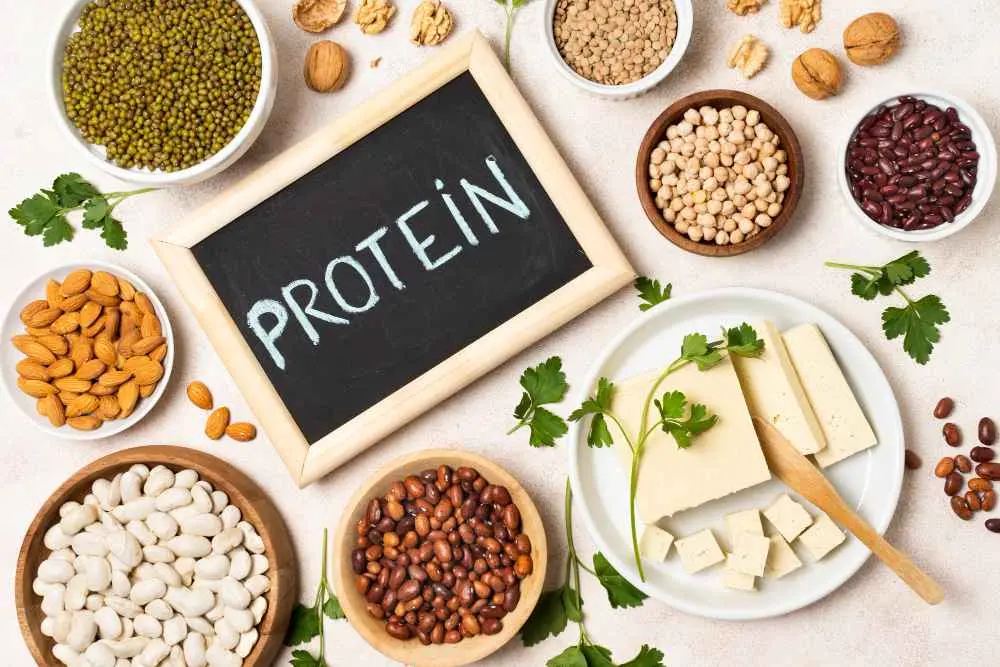We really need to focus on our health in this fast-paced world we live in, and a key part of that is maintaining a good diet. One of the most important ingredients of this healthy diet is protein. They play a really important role in our body’s functioning, so we need to make sure that we are consuming a good amount of protein every day.
But, before we get into what foods you must consume to keep your body well-rich in protein, let us understand why the body needs it. Protein is often called the “building blocks of life”. Wondering why? Because, protein helps in building up and mending tissues like muscle, skin, and our organs. It also helps in the making of essential enzymes, hormones, and other chemicals we need for our metabolism.
There are loads of tasty and healthy protein sources to include in your meals. In this article, we delve into the top 10 protein-rich foods that being a vegetarian also you can add to your diet.
Boost Your Protein Intake with These Top 10 Vegetarian-Friendly Foods
Protein should be part of everybody’s diet because it plays a big role in tissue growth and repair. While meat-eaters have several protein sources, vegetarians can also increase their protein intake with plant-based food options. Dive in to discover the top 10 protein-packed foods perfect for vegetarian diets.
Daal or Lentils
A cup full of lentils not only provides around 18 grams of protein but is also a rich source of iron, fiber, and folate. They are a tasty and nutritious addition to any vegetarian meal.
Protein Packed Chickpeas
Known by some as garbanzo beans, these little guys are a fantastic protein source for vegetarians. A single cup provides about 15 grams of protein and some bonus fiber, manganese, and folate.
Quinoa The Wonder Grains
This grain is a unique complete protein with all nine essential amino acids your body needs. Apart from 8 grams of protein per cup, it’s packed with fiber, iron, magnesium, and antioxidants.
Tofu Made With Soy Milk
Derived from soybeans, tofu is a flexible food item filled with protein. It offers 20 grams of protein in a single block, making it a great replacement for meat in vegetarian meals.
Greek Yogurt
Dairy-based Greek yogurt is rich in protein, providing 17 grams per 6-ounce serving. It’s also loaded with calcium, probiotics, and vitamin B12, forming a nutrition-dense choice for vegetarians.
Chia Seeds
Chia seeds are a wellness powerhouse filled with protein, fiber, omega-3 fatty acids, and antioxidants. Just two tablespoons can offer around 4 grams of protein!
Handful of Almonds
These little nuts are packed with protein, good fats, vitamin E, and magnesium. Just a quarter cup can provide about 8 grams of protein, making it an excellent protein-filled snack for vegetarians.
Edamame
These tender young soybeans are a protein-dense snack that can also be added to salads and stir-fries. A cup of cooked edamame provides about 17 grams of protein along with fiber, iron, and vitamin K.
Seitan
Known as wheat meat, this alternative meat for vegetarians provides significant protein. A single serving holds up to 25 grams of protein and comes with bonus iron, calcium, and selenium.
Black Beans
This versatile legume, rich in protein, fiber, folate, and antioxidants, delivers approximately 15 grams of protein in just a one-cup serving.
All the above-mentioned foods are packed with protein and are vegetarian. By including these protein-dense plant-based foods in their meals, vegetarians can gratify their protein requirements while enjoying a variegated and appetizing diet. But how much does your body need of this essential nutrient?
How Much Protein Does Your Body Need?
But how much protein should you eat? Well, this can vary depending on factors like your age, weight, and how active you are. As per experts, as an adult one should aim to consume around 0.8 grams of protein for every kilogram of body weight. But if you are someone who is actively indulged in physical activities or someone who loves working out, you might need more to help your muscles recover and grow.

